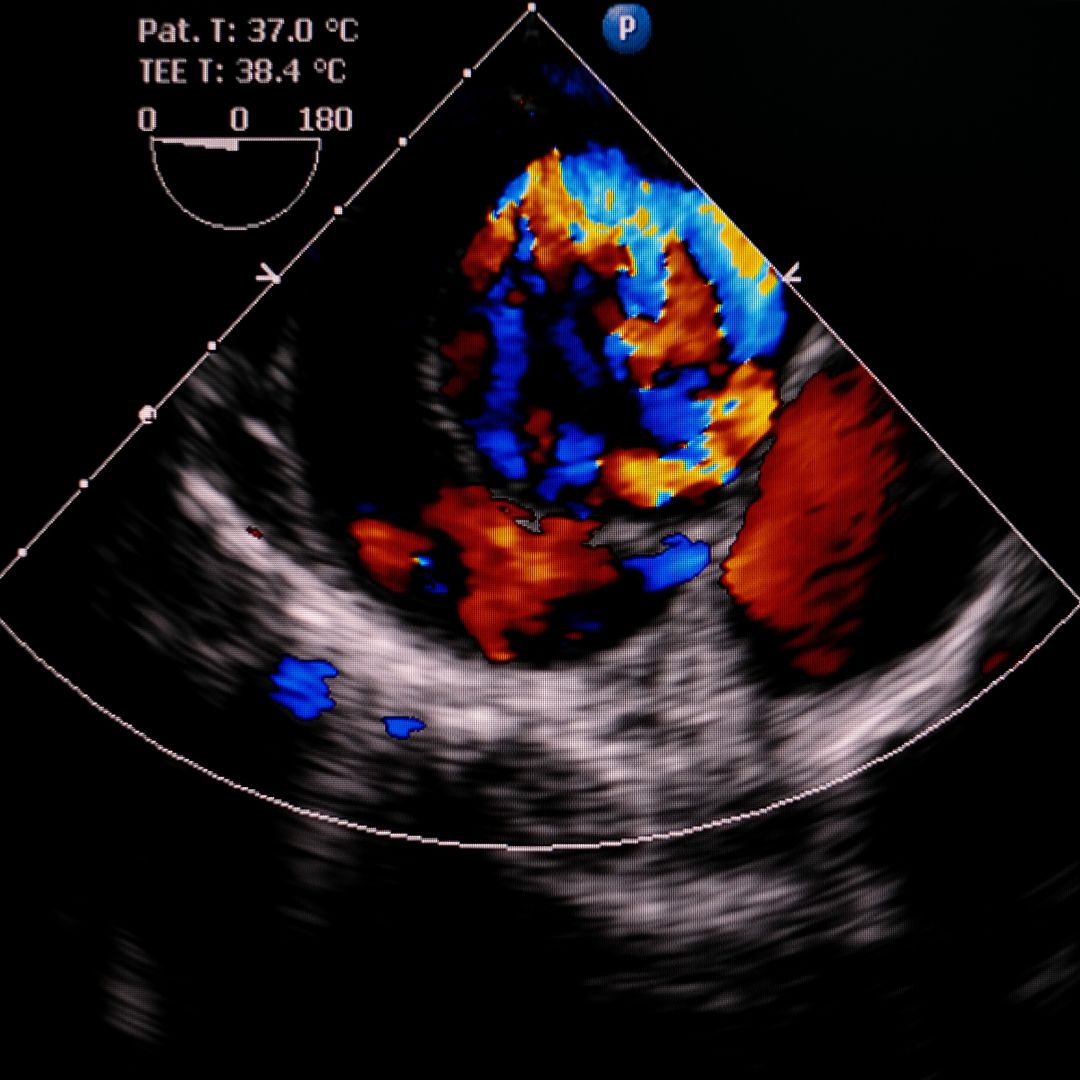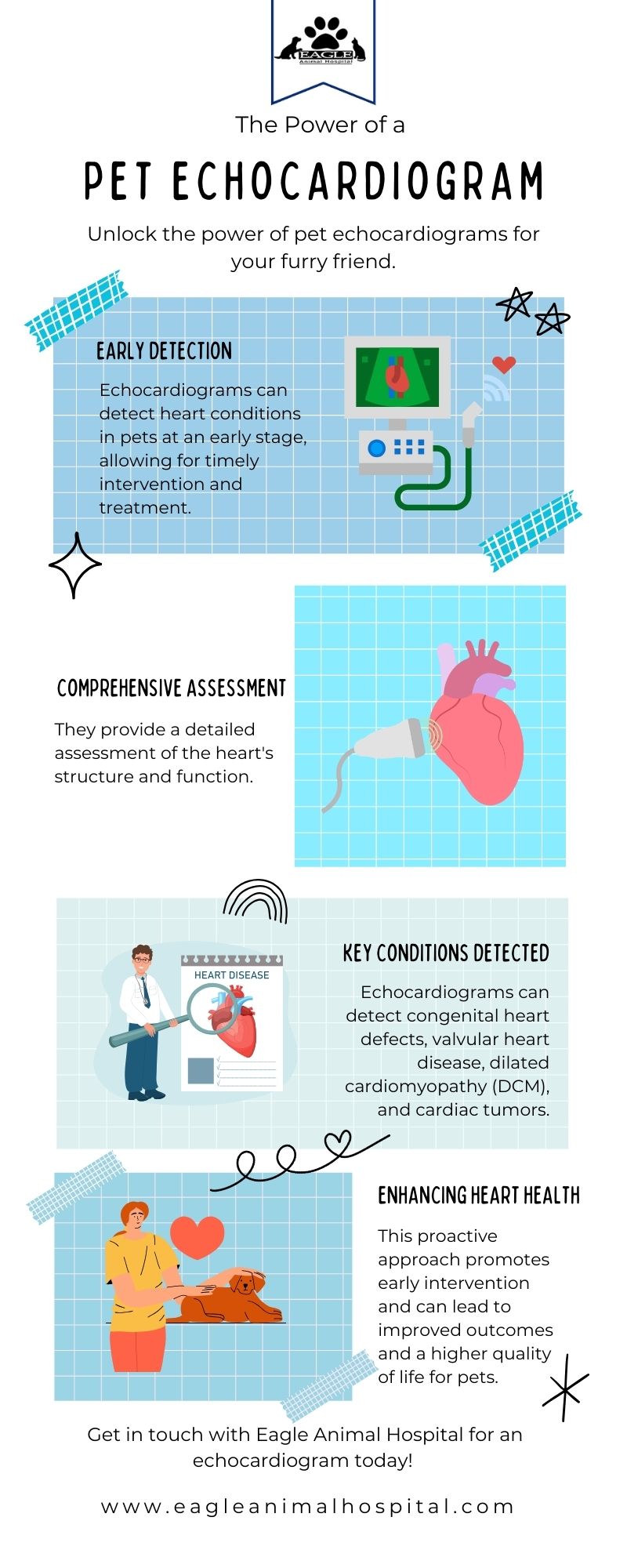A pet’s heart health is crucial for their overall well-being. Unfortunately, heart conditions can often go undetected without proper diagnostic tools. Luckily, echocardiograms can help! In this blog post, we will explore the various heart conditions in pets that can be effectively detected through an echocardiogram. Understanding these conditions and the importance of early detection can help ensure the best possible care for our furry friends. Get in touch with our team at Eagle Animal Hospital to schedule veterinary diagnostic services in or around Kansas City, MO, today!

Congenital Heart Defects
Congenital heart defects are abnormalities that are present at birth. They can range from structural issues in the heart chambers to abnormal blood vessel connections. An echocardiogram can provide detailed images of the heart’s structure and function, allowing veterinarians to identify and diagnose congenital heart defects in pets.

Valvular Heart Disease
Valvular heart disease occurs when the valves of the heart do not function properly, leading to problems with blood flow. An echocardiogram can assess the movement and function of the heart valves, enabling veterinarians to detect and monitor conditions such as mitral valve disease, a common heart condition in dogs.

Dilated Cardiomyopathy (DCM)
Dilated cardiomyopathy is a condition characterized by a weakened and enlarged heart muscle. Echocardiography can measure the size, thickness, and contractility of the heart muscle, helping veterinarians diagnose DCM in pets. Early detection allows for timely intervention and management of the condition.

Cardiac Tumors
Tumors can develop within the heart and affect its function. Echocardiograms provide detailed images that help veterinarians identify the presence and location of these tumors. With this information, appropriate treatment plans can be established to improve the quality of life for pets affected by cardiac tumors.

An echocardiogram is a valuable tool in diagnosing and monitoring various heart conditions in pets. From congenital heart defects to valvular diseases, dilated cardiomyopathy, and cardiac tumors, an echocardiogram provides detailed images that allow veterinarians to detect and assess these conditions accurately. With early detection, pet owners can work closely with their veterinarians to implement appropriate treatment plans, manage symptoms, and improve the overall heart health of their beloved companions. Regular cardiac screenings and consultations with a veterinary cardiologist can significantly contribute to the well-being and longevity of pets. If you have concerns about your pet’s heart health or suspect any heart-related issues, don’t hesitate to reach out to your veterinary team at Eagle Animal Hospital for a comprehensive evaluation and guidance. Remember, the earlier heart conditions are detected, the better the chances for successful treatment and improved quality of life for your furry friend!
